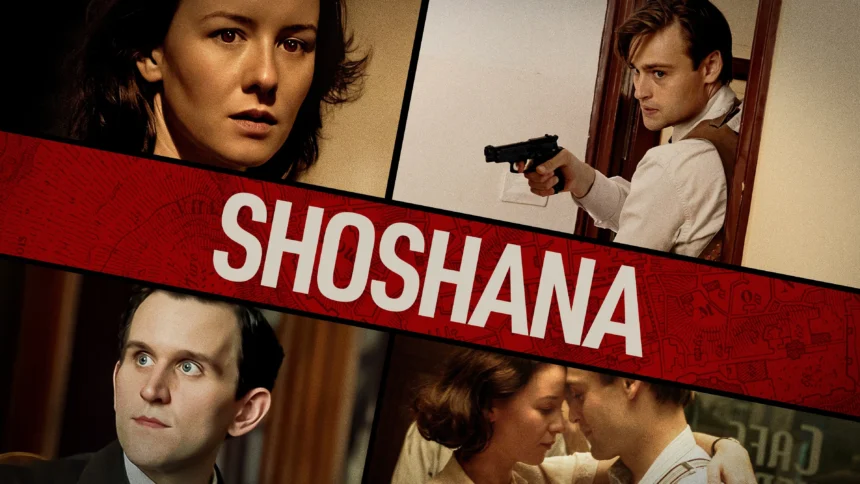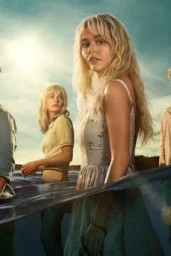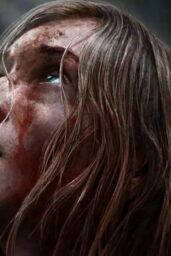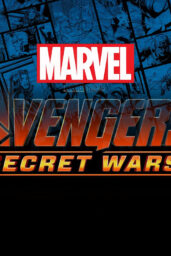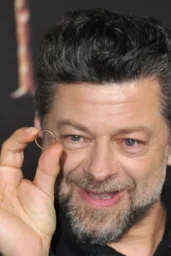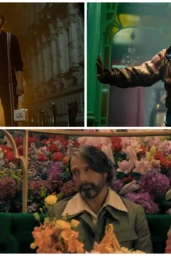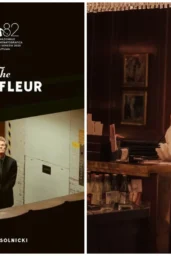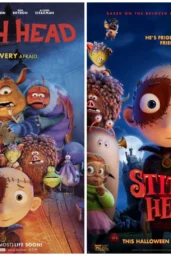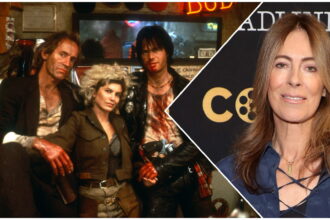Colonial Romance Meets Car Bombs — Shoshana Is Not Here to Make You Comfortable
Michael Winterbottom just dropped the trailer for Shoshana—and it's already dividing the room like a Molotov cocktail at a peace rally.
Set in 1930s Tel Aviv under British rule, Shoshana isn't your average period piece. It's a political thriller disguised as a tragic love story, one that lands with jarring relevance in 2025. Why? Because it's literally about the Israel–Palestine conflict—before it was cool (read: endlessly polarizing and weaponized in every algorithmic feed). Greenwich Entertainment must've wrestled with that radioactive context, sitting on this film since its 2023 Toronto premiere. But with the July 25th U.S. release now confirmed, we finally get a glimpse—and it's explosive.
“He knows nothing about Tel Aviv! Why did they choose him over you?”
— a line from the trailer that hits harder than a drone strike.
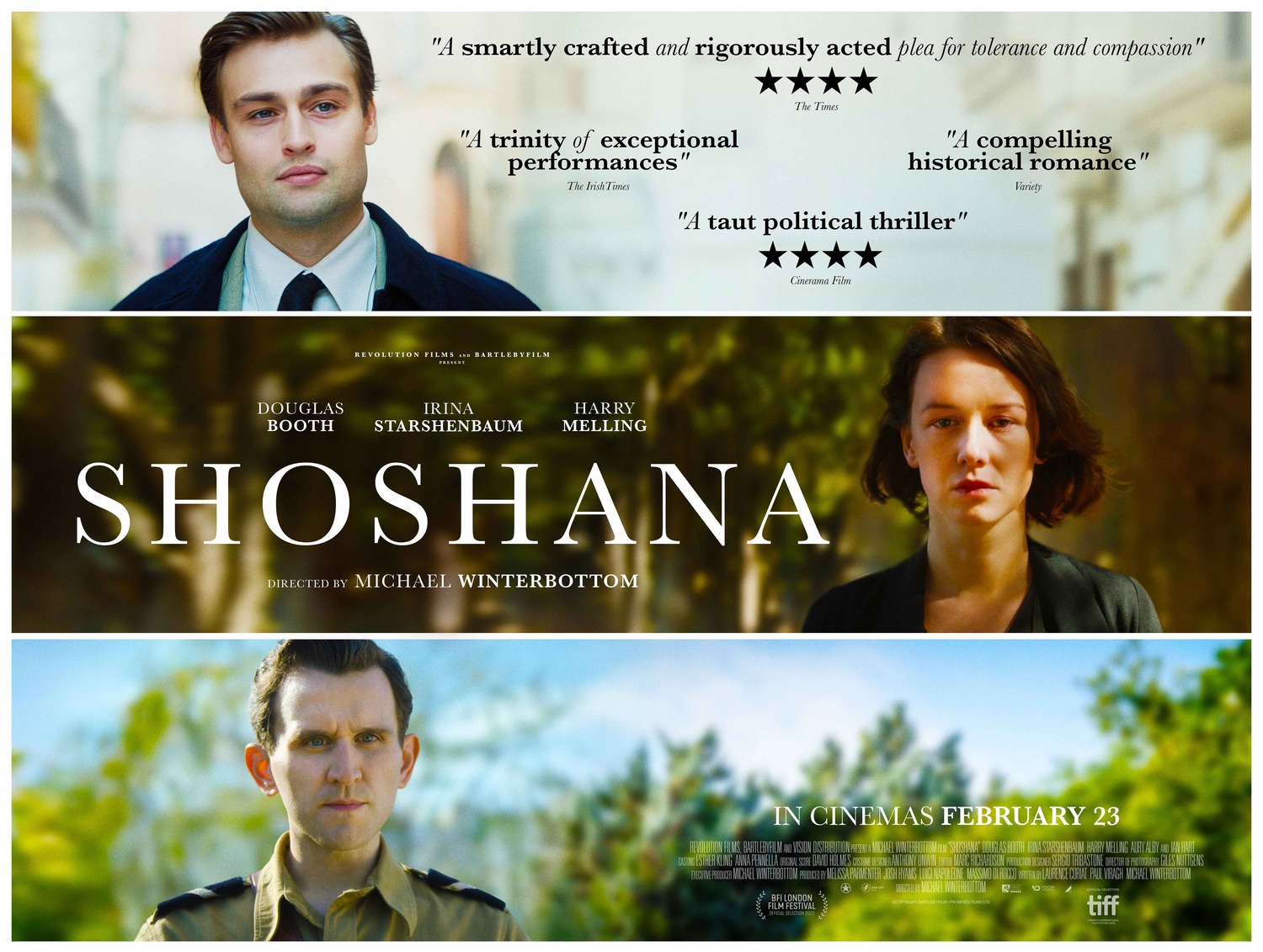
Is This Just Casablanca with Gunpowder? Not Even Close.
There's an insane tension threading this trailer: British officer Thomas Wilkin (Douglas Booth) falls in love with Shoshana Borochov (Irina Starshenbaum), a fiercely modern, feminist Jewish woman. Sounds poetic—until you remember Wilkin is tasked with crushing local resistance. That resistance? Led by Avraham Stern, an actual historical figure who believes Zionism requires bloodshed. Played with cult-leader intensity by Aury Alby, Stern doesn't just oppose the British—he targets them.
Harry Melling (yes, The Queen's Gambit guy) plays Geoffrey Morton, Wilkin's colleague in the anti-terror squad. The irony? These guys are labeled anti-terror, but operate within a colonial regime. It's The Constant Gardener meets Munich—if both films had the guts to ask: what side of history are you on?
Winterbottom's camera isn't just tracking movement—it's implicating everyone. Every kiss is underlined with dread. Every chase is drenched in moral rot.
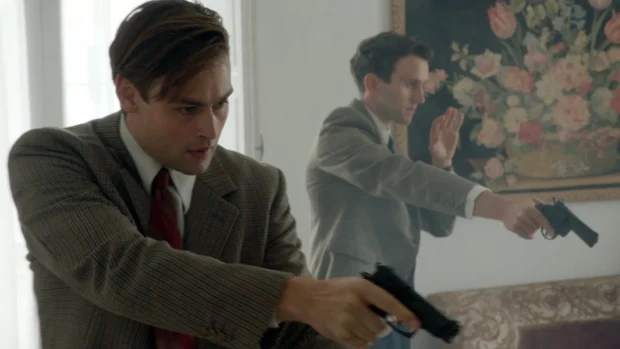
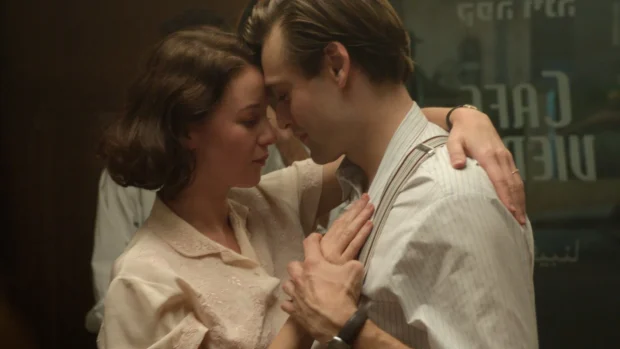
The Context Hollywood Fears (But Can't Ignore)
Here's what makes Shoshana a cinematic grenade: it's not a biopic, but it is based on real events. Stern existed. Wilkin and Morton were part of Britain's colonial police. Shoshana may be fictional, but she represents the soul of a city torn between ideologies—progressive feminism vs. militant nationalism.
Compare this to Kathryn Bigelow's Zero Dark Thirty or Chris Morris' The Day Shall Come—films that tiptoe (or lampoon) around extremism. Winterbottom doesn't tiptoe. He marches straight into the fire. That might explain the delay. Releasing a film where Jewish militants are portrayed as violent revolutionaries during this geopolitical moment? Risky doesn't begin to cover it.
And let's be honest—Hollywood's history with Middle East narratives is messier than a spilled hummus plate at a Zionist dinner party. Most studios either sanitize it (Exodus: Gods and Kings) or reduce it to tropes (Homeland). Shoshana dares to show colonial cops as complex, the rebels as fractured, and the civilians—like Shoshana herself—as caught in a storm not of their making.
“A British distributor reportedly passed on it last fall. One exec allegedly said: ‘It's brilliant—but no one wants this smoke right now.'”*
Heroism or Hypocrisy? You Decide.
So here we are. A romantic thriller that refuses to play nice, directed by a guy who made The Road to Guantanamo and A Mighty Heart. Winterbottom's fingerprints are everywhere—layered timelines, political ambiguity, sharp-eyed naturalism. Don't expect clean morals. Expect questions that linger like tear gas.
Will Shoshana win over American audiences—or will it be labeled “too hot to handle” like so many war-zone films before it? That's your call.
Would you watch this or burn $20? No judgment. (…Okay, some judgment.)

